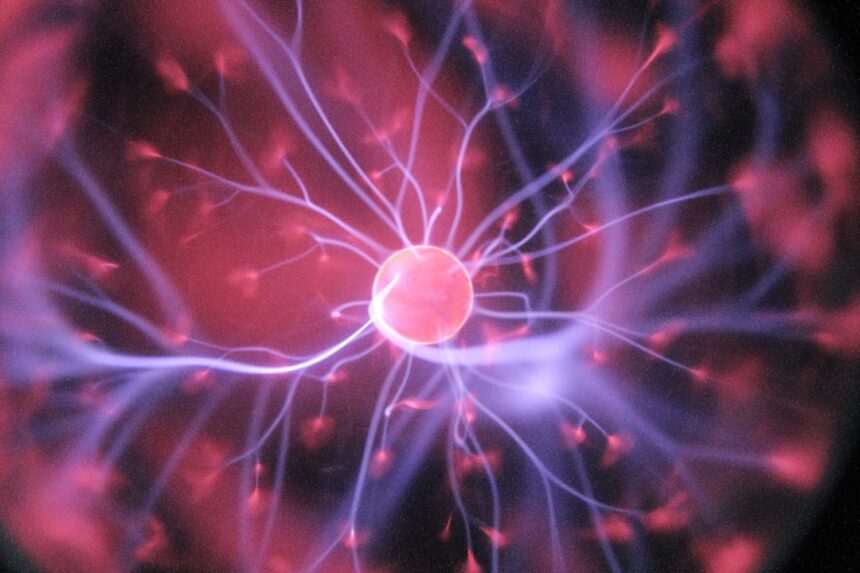The sympathetic nervous system (SNS) is a crucial component of your autonomic nervous system, which regulates involuntary bodily functions. It plays a vital role in preparing your body to respond to perceived threats or stressors. When you encounter a challenging situation, the SNS activates, triggering a cascade of physiological changes that enable you to react swiftly.
This system is often referred to as the “fight or flight” response, highlighting its primary function in survival. Understanding the SNS is essential for grasping how your body responds to stress and how it can impact your overall health. As you delve deeper into the workings of the sympathetic nervous system, you will discover its intricate connections with various bodily functions.
The SNS operates in tandem with the parasympathetic nervous system, which promotes relaxation and recovery. Together, these systems maintain a delicate balance that is crucial for your well-being. By exploring the activation of the SNS and its effects on your body, you can gain valuable insights into how stress influences your health and how you can manage it effectively.
Key Takeaways
- The sympathetic nervous system is responsible for the body’s fight or flight response, preparing the body for action in response to stress or danger.
- Activation of the sympathetic nervous system leads to physiological effects such as increased heart rate, dilated pupils, and decreased digestion.
- Chronic activation of the sympathetic nervous system is linked to increased stress levels and can have long-term effects on overall health and well-being.
- Sympathetic nervous system activation can impact cardiovascular health, respiratory function, digestive health, immune function, and mental health.
- Managing sympathetic nervous system activation through relaxation techniques, exercise, and stress management can contribute to overall well-being and health.
The Role of Sympathetic Nervous System Activation in the Fight or Flight Response
When faced with danger or stress, your body instinctively activates the sympathetic nervous system, initiating the fight or flight response. This response is an evolutionary adaptation that has allowed humans and animals alike to survive in threatening situations. As soon as a threat is perceived, your brain sends signals to the SNS, which then releases neurotransmitters like adrenaline and norepinephrine.
These chemicals prepare your body for immediate action, heightening your senses and increasing your heart rate.
Your pupils dilate to enhance vision, while blood flow is redirected from non-essential functions, such as digestion, to your muscles and brain.
This shift allows you to react quickly, whether that means fleeing from danger or confronting it head-on. The fight or flight response is not just a mental phenomenon; it involves a complex interplay of hormones and bodily functions that work together to ensure your survival in critical moments.
Understanding the Physiological Effects of Sympathetic Nervous System Activation

The activation of the sympathetic nervous system leads to a series of physiological changes that prepare you for action. One of the most immediate effects is an increase in heart rate and blood pressure, which ensures that oxygen-rich blood reaches your muscles and vital organs more efficiently. This heightened state of alertness can enhance your physical performance, allowing you to respond more effectively to threats.
Additionally, your respiratory rate increases as your body demands more oxygen to fuel its heightened activity. This change can lead to shallow breathing if not managed properly, which may result in feelings of anxiety or panic. Furthermore, the release of glucose from your liver provides an energy boost, ensuring that you have the necessary fuel for quick reactions.
While these changes are beneficial in acute situations, they can become problematic if the sympathetic nervous system remains activated for extended periods.
The Link Between Sympathetic Nervous System Activation and Stress
| Metrics | Data |
|---|---|
| Heart Rate | Increases during sympathetic nervous system activation |
| Blood Pressure | Rises due to sympathetic nervous system stimulation |
| Respiration Rate | Increases as a result of sympathetic nervous system activation |
| Stress Hormones | Release of cortisol and adrenaline due to sympathetic nervous system activation |
Stress is a common trigger for sympathetic nervous system activation, and understanding this connection is vital for managing your health. When you experience stress—whether from work, relationships, or other life challenges—your body perceives it as a threat. This perception activates the SNS, leading to the physiological changes associated with the fight or flight response.
While this response can be helpful in short bursts, chronic activation due to ongoing stress can have detrimental effects on your health. Prolonged sympathetic activation can lead to a state of hyperarousal, where your body remains in a heightened state of alertness even when there is no immediate danger. This constant state of readiness can contribute to various health issues, including anxiety disorders, cardiovascular problems, and digestive disturbances.
Recognizing the signs of stress and understanding how it triggers SNS activation can empower you to take proactive steps toward managing stress effectively.
Sympathetic Nervous System Activation and Cardiovascular Health
The relationship between sympathetic nervous system activation and cardiovascular health is significant and multifaceted. When the SNS is activated, it causes an increase in heart rate and blood pressure, which can be beneficial in short-term situations requiring quick responses. However, if this activation becomes chronic due to ongoing stressors, it can lead to long-term cardiovascular issues such as hypertension and increased risk of heart disease.
Chronic sympathetic activation can cause wear and tear on your cardiovascular system. Over time, elevated blood pressure can damage blood vessels and increase the risk of plaque buildup in arteries, leading to atherosclerosis. Additionally, prolonged stress can contribute to unhealthy lifestyle choices such as poor diet and lack of exercise, further exacerbating cardiovascular risks.
Understanding this connection highlights the importance of managing stress effectively to protect your heart health.
The Impact of Sympathetic Nervous System Activation on Respiratory Function

Your respiratory function is also influenced by sympathetic nervous system activation. When faced with stress or danger, your breathing rate increases to supply more oxygen to your muscles and brain. While this response can be advantageous during acute stressors, it may lead to complications if not managed properly.
Rapid or shallow breathing can result in hyperventilation, which may cause dizziness, lightheadedness, or feelings of anxiety. Moreover, chronic activation of the sympathetic nervous system can exacerbate existing respiratory conditions such as asthma or chronic obstructive pulmonary disease (COPD). Stress-induced inflammation can lead to airway constriction and difficulty breathing.
Sympathetic Nervous System Activation and Digestive Health
The effects of sympathetic nervous system activation extend beyond cardiovascular and respiratory health; they also significantly impact your digestive system. When the SNS is activated during stressful situations, blood flow is redirected away from the digestive organs toward more critical areas like muscles and the brain. This shift can lead to decreased digestive efficiency and may result in symptoms such as bloating, indigestion, or even irritable bowel syndrome (IBS).
Chronic stress and prolonged sympathetic activation can disrupt the delicate balance of gut health by affecting gut motility and altering gut microbiota composition. This disruption can lead to various gastrointestinal issues that may further exacerbate feelings of anxiety or stress. Understanding this connection emphasizes the importance of managing stress not only for mental well-being but also for maintaining a healthy digestive system.
The Influence of Sympathetic Nervous System Activation on Immune Function
The immune system is another area significantly affected by sympathetic nervous system activation. While acute stress can temporarily enhance immune function by mobilizing immune cells to respond to potential threats, chronic activation due to ongoing stress can have the opposite effect. Prolonged sympathetic activation can suppress immune responses, making you more susceptible to infections and illnesses.
This suppression occurs because chronic stress leads to elevated levels of cortisol—a hormone released during stress—that can inhibit the production of immune cells and inflammatory cytokines necessary for fighting off pathogens. As a result, understanding how stress impacts immune function through SNS activation is crucial for maintaining overall health and resilience against illness.
Sympathetic Nervous System Activation and Mental Health
The relationship between sympathetic nervous system activation and mental health is complex yet critical. Chronic activation due to ongoing stress can contribute to various mental health issues such as anxiety disorders, depression, and post-traumatic stress disorder (PTSD). When your body remains in a heightened state of alertness for extended periods, it can lead to feelings of overwhelm and emotional exhaustion.
Moreover, the physiological changes associated with SNS activation—such as increased heart rate and shallow breathing—can mimic symptoms of anxiety or panic attacks. This overlap can create a vicious cycle where heightened anxiety leads to further SNS activation, perpetuating feelings of distress. Recognizing this connection allows you to take proactive steps toward managing both stress levels and mental health effectively.
Chronic Activation of the Sympathetic Nervous System and its Long-Term Effects
Chronic activation of the sympathetic nervous system poses significant risks for long-term health outcomes. As previously mentioned, prolonged SNS activation can lead to cardiovascular issues, digestive disturbances, respiratory problems, immune suppression, and mental health challenges. Over time, these interconnected effects can create a cascade of health problems that may significantly impact your quality of life.
Understanding these long-term effects emphasizes the importance of recognizing when you are experiencing chronic stress and taking steps to mitigate its impact on your body. By addressing lifestyle factors such as diet, exercise, sleep quality, and mindfulness practices, you can work toward restoring balance between the sympathetic and parasympathetic nervous systems.
Managing Sympathetic Nervous System Activation for Overall Well-Being
Managing sympathetic nervous system activation is essential for promoting overall well-being and maintaining optimal health. There are several strategies you can employ to help regulate your body’s response to stress effectively. Mindfulness practices such as meditation or deep breathing exercises can activate the parasympathetic nervous system—your body’s natural relaxation response—counteracting the effects of SNS activation.
Incorporating regular physical activity into your routine is another effective way to manage stress levels. Exercise not only helps release built-up tension but also promotes the release of endorphins—natural mood lifters that counteract feelings of anxiety or depression. Additionally, prioritizing adequate sleep is crucial for allowing your body to recover from daily stressors and restore balance between the sympathetic and parasympathetic systems.
By understanding how sympathetic nervous system activation affects various aspects of your health—from cardiovascular function to mental well-being—you empower yourself with knowledge that enables proactive management of stressors in your life. Embracing these strategies will not only enhance your resilience against stress but also contribute positively to your overall quality of life.
The sympathetic nervous system plays a crucial role in the body’s response to stress, often referred to as the “fight or flight” response. When activated, it triggers a series of physiological changes, such as increased heart rate and blood pressure, to prepare the body for rapid action. For a deeper understanding of how the sympathetic nervous system functions and its impact on mental health, you can explore a related article on this topic by visiting Unplugged Psych. This resource provides valuable insights into the intricate workings of the nervous system and its influence on psychological well-being.
WATCH THIS! Hyper-Independence Is Not Strength
FAQs
What is the sympathetic nervous system?
The sympathetic nervous system is a part of the autonomic nervous system, which controls involuntary bodily functions. It is responsible for the body’s “fight or flight” response to stress or danger.
What are the functions of the sympathetic nervous system?
The sympathetic nervous system activates the body’s response to stress by increasing heart rate, dilating airways, and redirecting blood flow to muscles. It also releases adrenaline and noradrenaline to prepare the body for action.
What are the effects of sympathetic nervous system activation?
Sympathetic nervous system activation can lead to increased heart rate, elevated blood pressure, dilated pupils, increased sweating, and decreased digestion. It also enhances the body’s ability to respond to a perceived threat.
What triggers sympathetic nervous system activation?
Sympathetic nervous system activation is triggered by stress, fear, or any situation that the body perceives as a threat. It can also be activated during exercise or physical exertion.
How does sympathetic nervous system activation affect health?
While the sympathetic nervous system is crucial for survival, chronic activation can lead to health issues such as high blood pressure, heart disease, and anxiety disorders. It is important to manage stress and find ways to activate the parasympathetic nervous system to counterbalance sympathetic activation.




